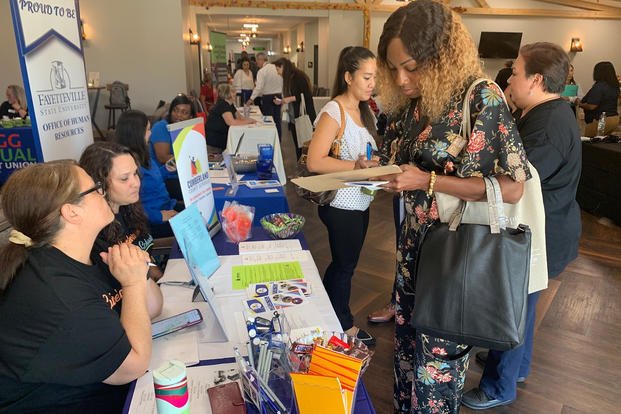A federal judge has ruled that the state of Texas violated a new provision of the Servicemembers Civil Relief Act in refusing to recognize an Air Force wife's out-of-state school counselor credentials -- a rejection that prevented her from getting a permanent job in the state.
As the first-ever decision on a law that required states to recognize occupational licenses issued elsewhere, the case has widespread implications for the estimated 255,000 active-duty military spouses who require professional credentials to work in education, medicine, real estate, the beauty industry and more.
Judge Robert Pitman of the U.S. Texas Western District Court ruled Monday that Texas Commissioner of Education Mike Morath, the Texas Education Agency and the State Board for Educator Certification violated the SCRA when they required Hannah Magee Portee to comply with state requirements that she used her counseling licenses continuously in the previous two years to qualify for state certification.
Read Next: VA Pauses Foreclosures on Veterans Facing Difficulties Making Mortgage Payments
Portee earned school counseling licenses in Missouri and Ohio and worked as a substitute and elementary school counselor in those states in 2022 before marrying her husband and moving to Laughlin Air Force Base in Texas last January on orders.
The state would not provide her a Texas license based on her other two licenses and asked her to take the Texas certification test or prove that she had worked continuously for the past two years in her profession.
In February, Portee learned of the new SCRA provision and informed the state. But she still was rebuffed, with a state official telling her in a phone call that, despite what the law said, "It would not apply to Texas."
Portee hired an attorney.
The state argued it had a right to decide who is qualified and licensed to teach in Texas, but it also argued that the provision did not apply to it, nor was it obligated to provide Portee with due process because the state had immunity from such lawsuits as hers.
In an interim ruling issued in July, however, Pitman said that the state's defense seemed to undermine the intent of the law by "imposing narrow and seemingly arbitrary restrictions on the ability of service members and their spouses to port their professional licenses."
The state's interpretation, Pitman added, effectively banned newly licensed service members, who also are covered by the law, or spouses from using hard-earned credentials, and it also penalized experienced workers who worked part time elsewhere or didn't work previously for medical or personal reasons -- also not the purpose of the law.
"Given the unpredictable timing and frequency of military-ordered moves, this approach would make license portability impossible for many service members and spouses," Pitman wrote in the July decision.
Pitman's temporary injunction allowed Portee to get a temporary license and work as a substitute counselor, but that position offered less pay and fewer benefits. Now, under the ruling, she can apply for a permanent license.
President Joe Biden signed the Military Spouse Licensing Relief Act, as part of the 2022 Veterans Auto and Education Improvement Act, on Jan. 5. It requires states to provide reciprocity for occupational licenses from other states.
Roughly 36% of active-duty spouses, or more than a quarter-million people, need state-issued licenses for their careers, according to the Defense Department's 2021 Survey of Active-Duty Spouses, released this year.
The Justice Department in July filed a statement with the court in support of Portee, arguing that under its interpretation, the law requires only that a license have been used at some point during the previous two years and it is in the public interest to reduce barriers to spouse employment.
"This federal law is in place to help military spouses maintain their careers and financial security while enduring already stressful life changes," Jaime Esparza, U.S. attorney for the Western District of Texas, said in a statement July 13. "Ultimately, the SCRA strengthens America's military families and our overall national security, and that is not something any agency should interfere with."
The Texas Education Agency did not respond to a request for comment by publication.
-- Patricia Kime can be reached at Patricia.Kime@Military.com.
Related: Congress Weighs Giving Military Spouses More Options to Work Remotely for Government














